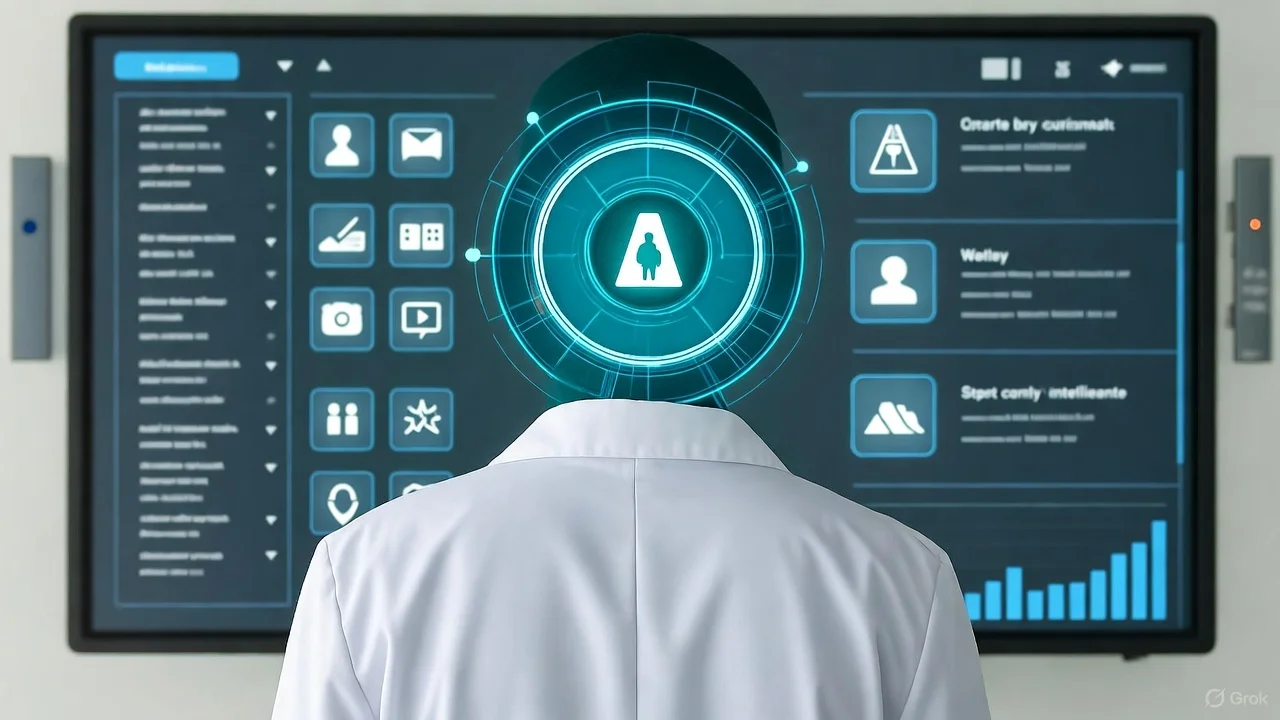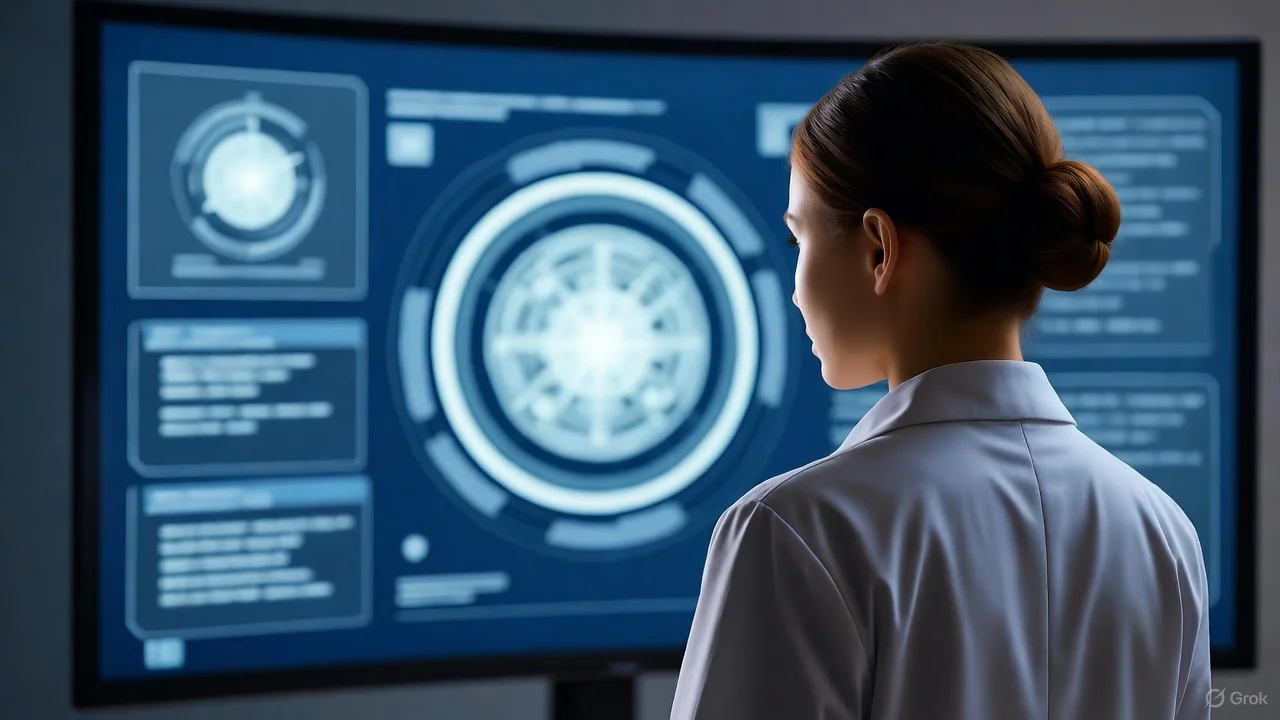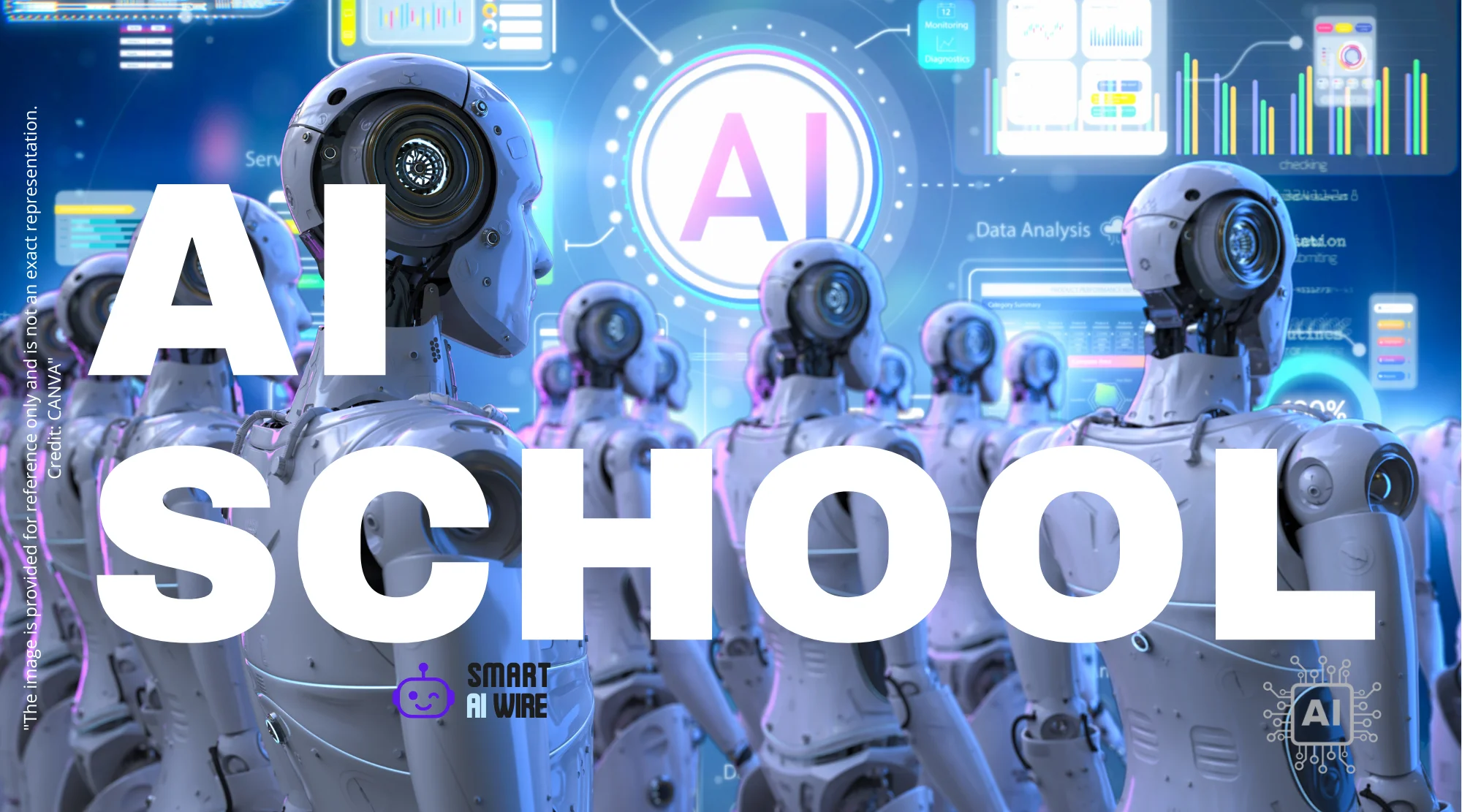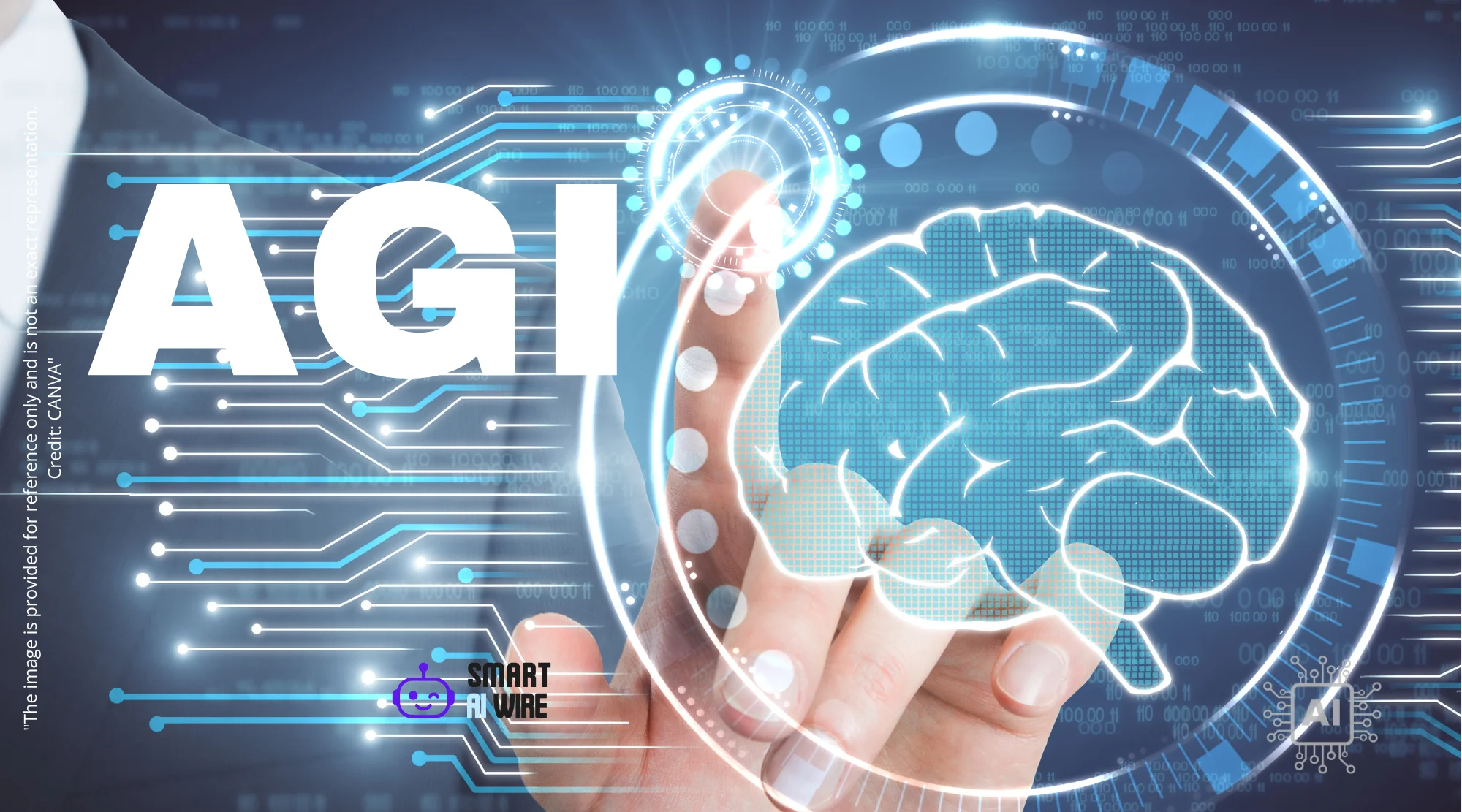Imagine a world where personalized health advice is available at your fingertips, 24/7. No more generic recommendations; instead, an AI-powered assistant analyzes your unique health data to provide tailored guidance. This is the promise of AI personal health assistants, and Google Research is at the forefront of this revolution. This technology has the potential to shift healthcare from a reactive, one-size-fits-all approach to a proactive, preventative, and personalized one. This article explores how these AI assistants work, their potential benefits, and what they mean for the future of healthcare.
The Rise of AI-Powered Personalized Healthcare
The healthcare landscape is rapidly evolving, driven by advancements in artificial intelligence. The potential for AI to revolutionize personalized medicine is immense. These innovative systems are moving beyond generalized advice to offer specific recommendations based on an individual’s unique health profile. Google Research’s AI personal health assistant represents a significant step in this direction, showcasing how AI can interpret intricate health data and provide actionable, personalized insights.
These systems analyze a variety of data points, including information from wearable devices like smartwatches, responses to health questionnaires, and even blood biomarkers. This comprehensive approach enables the AI to identify patterns, predict potential health risks, and suggest proactive interventions to enhance overall well-being. This paradigm shift emphasizes prevention and personalized care over traditional reactive models, empowering individuals to take control of their health journey.

How an AI Personal Health Assistant Operates
Google Research’s AI personal health assistant uses a sophisticated architecture inspired by collaborative human expert teams. This involves breaking down the multifaceted task of health management into three specialized roles, each managed by a dedicated “sub-agent”: a data analyst, a health expert, and a personal coach. This design allows for a comprehensive and effective approach to personalized health assistance.
The Data Analyst: Uncovering Insights from Your Data
The data analyst sub-agent is responsible for interpreting user queries and translating them into actionable data analysis plans. For example, if a user asks, “How has my sleep quality been over the past month?”, the data analyst will extract the relevant data from sleep trackers and other sources to provide a comprehensive answer. This sub-agent excels at identifying trends and patterns that might be missed by a human, offering valuable insights into your health. This aligns with the broader trend of using AI in the workplace, as discussed in our article, AI in the Workplace: How Tech Professionals Are Using It Now.
The Health Expert: Providing Evidence-Based Guidance
The health expert sub-agent serves as a reliable source of medical knowledge, offering evidence-based recommendations tailored to the user’s specific health profile. It utilizes scientific databases and medical literature to ensure the accuracy and relevance of its advice. The health expert considers pre-existing conditions and other individual factors to provide personalized guidance that is both safe and effective. For instance, it might suggest incorporating the Mediterranean diet, based on the user’s health data and preferences. More information is available on BeFullBeHealth.com: Mediterranean Diet: Your Guide to a Longer, Healthier Life.
The Personal Coach: Motivating You to Achieve Your Goals
The personal coach sub-agent focuses on motivating users to achieve their health goals and adopt healthier habits. It employs proven psychological strategies, such as motivational interviewing, to engage users in meaningful conversations and encourage behavior change. The personal coach provides ongoing support and guidance, helping users overcome obstacles and stay on track with their health plans. This personalized support is crucial for long-term success.
These three sub-agents collaborate under the supervision of an intelligent orchestrator, which dynamically assigns roles based on the user’s query. This coordinated approach ensures that the AI provides comprehensive and coherent advice, addressing both the analytical and behavioral aspects of health management. This collaborative system is designed to outperform single-agent systems, offering a more nuanced and effective approach to personal health assistance.

Analyzing User Data: A Detailed Examination
The AI’s ability to thoroughly analyze user data is pivotal to its effectiveness. The system integrates data from various sources, creating a comprehensive picture of an individual’s health status. This data may include:
- Wearable Device Data: Information from devices like fitness trackers and smartwatches, including activity levels, sleep patterns, heart rate, and even blood oxygen saturation.
- Health Questionnaires: Responses to questions about medical history, lifestyle habits (diet, exercise, smoking, alcohol consumption), and current health concerns.
- Blood Biomarkers: Results from blood tests, including cholesterol levels, blood sugar levels, vitamin levels, and other critical indicators of health.
By analyzing this data, the AI can identify potential health risks, track progress towards health goals, and provide personalized recommendations for improvement. The system uses sophisticated algorithms to detect patterns and correlations that might not be apparent to individuals or even healthcare professionals. For example, it might detect a link between sleep patterns and blood sugar levels, or identify early warning signs of a potential cardiovascular issue.
The insights derived from data analysis are then used to tailor the recommendations provided by the health expert and personal coach sub-agents. This ensures that the advice is relevant, actionable, and aligned with the individual’s specific needs and goals.
The Advantages of Personalized Health Recommendations
The promise of personalized health recommendations goes beyond mere convenience; it offers significant potential benefits for individuals and the healthcare system as a whole.
- Improved Health Outcomes: By providing tailored advice and support, the AI can help individuals adopt healthier habits, manage chronic conditions, and prevent the onset of new health problems. This can lead to improved overall health, reduced healthcare costs, and an enhanced quality of life. It’s important to consider aspects like brain health, for which more info is available on BeFullBeHealth.com: Brain Health: Proven Strategies to Protect Your Mind and Boost Cognitive Function.
- Increased Engagement: Personalized recommendations are more likely to resonate with individuals, leading to increased engagement and adherence to health plans. The AI’s ability to provide ongoing support and motivation can further enhance engagement and help individuals stay on track with their health goals.
- Early Detection of Health Risks: By analyzing data from various sources, the AI can detect early warning signs of potential health conditions, allowing for timely intervention and prevention. This can be particularly valuable for individuals at high risk of developing certain diseases, such as diabetes or heart disease.
- Empowerment and Control: An AI personal health assistant empowers individuals to take control of their health by providing them with the information and support they need to make informed decisions. This can foster a sense of agency and self-efficacy, leading to greater motivation and commitment to health improvement.

The Future of AI in Healthcare
While Google Research’s AI personal health assistant is currently a research prototype, it offers a glimpse into the exciting future of AI in healthcare. As AI technology continues to advance, we can expect to see even more sophisticated and personalized health solutions emerge.
These solutions may include:
- AI-Powered Diagnostics: AI could be used to analyze medical images, such as X-rays, MRIs, and CT scans, to detect diseases and conditions more accurately and efficiently than traditional methods.
- Personalized Drug Development: AI could be used to identify the most effective treatments for individual patients based on their genetic makeup, lifestyle, and other factors, leading to more targeted and effective therapies.
- Remote Patient Monitoring: AI could be used to monitor patients remotely, allowing healthcare providers to detect problems early and intervene proactively, potentially preventing serious complications and hospitalizations.
However, it’s also crucial to address the ethical and practical considerations associated with AI in healthcare, including data privacy, algorithmic bias, and the potential for job displacement. Responsible development and deployment of AI technologies are essential to ensure that they benefit all members of society. The ethical considerations of AI are discussed in our article, AI Safety Tools: Navigating the Ethics of Content Moderation.
According to the National Institutes of Health (NIH), AI has the potential to revolutionize healthcare by improving diagnostics, treatment, and prevention. Learn more about NIH’s AI initiatives here. Another reliable source of information on AI in healthcare is the World Health Organization (WHO). You can find their resources on this topic here.
A Holistic Wellness Approach
The true power of an AI-driven personal health assistant lies in its capacity to embrace a holistic approach to wellness. Rather than focusing solely on isolated symptoms or metrics, it integrates various aspects of your life – from sleep and activity to diet and mental well-being – to create a comprehensive understanding of your health.
This holistic perspective is crucial because our bodies and minds are intricately interconnected. A lack of sleep can negatively affect your mood and energy levels, while a poor diet can contribute to inflammation and chronic diseases. By considering all these factors, the AI can provide more accurate and effective recommendations that address the root causes of health issues, not just the symptoms. This approach aligns with other trends in AI, such as AI agents, as discussed in our article AI Agents: Revolutionizing Business Operations and Efficiency.
Conclusion
Google Research’s AI personal health assistant represents a significant step towards a future where healthcare is proactive, personalized, and readily accessible. While still in the research phase, this innovative system showcases the transformative potential of AI in how we manage our health and well-being. As AI technology continues to evolve, we can anticipate even more groundbreaking solutions that empower individuals to lead healthier, longer lives. Embracing this future requires a commitment to responsible development and deployment, ensuring that AI benefits all of humanity.
Source: Be Health Be Full



